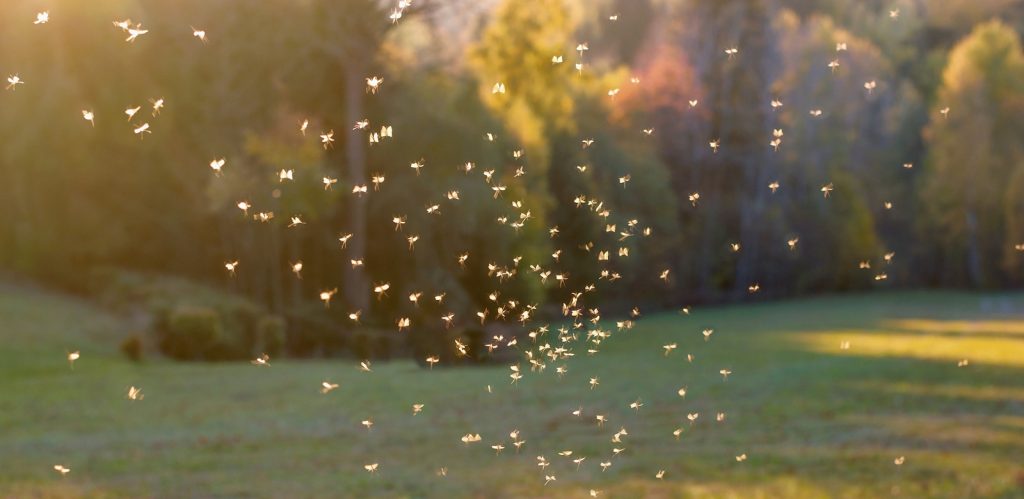With spring in full affect, you are more likely to catch a glimpse of feeding bats at dusk. This is even more likely if you live near a creek or body of water where insects like to linger and fly around. As a result of these increased sightings this time of year, it is natural to feel a bit threatened by the present of local bat populations.
But do not worry; bats will not attack so long as you keep your distance and never provoke them. And most importantly, do not believe the common myth that bats will suck your blood. Although there is a species of bat that consumes the blood of livestock, here in Indiana, bats are on a completely different kind of diet.
Continue reading to learn exactly what bats are eating night after night!

Microchiroptera Bats are Insectivores
Microchiroptera bats, also known as microbats, are the only Suborder of bats found in Indiana, and they are all insectivores. Insectivores are any living organisms with a diet that consists mostly of insects. A lot of well-known animals are insectivores, including hedgehogs, anteaters, armadillos, moles, and more. As for bats, you can add them to the list too.
A Bat’s Diet
A single bat can consume more than its own body weight in insects, in just one single evening. That’s an average of 1,000 insects or more. Since bats usually live in large colonies, a single group can eradicate millions of insects each night in just one area! That is why they are terrific pest control for our local crops, farmers, and even our own backyards. Mosquitoes are one of their favorite insects, which helps keep outdoor activities more fun, and abates the spread of mosquito-transmitted diseases.
The most common types of insects bats eat here in Indiana include:
↠ Mosquitoes
↠ Flies
↠ Gnats
↠ Moths
↠ Dragonflies
↠ Termites
↠ Beetles
↠ Grasshoppers
↠ Bees
↠ Wasps
↠ And Other Flying Insects
If Bats Get Too Close…
If you find a bat in the attic, house, yard, or other area of your property, it is strongly recommended to contact a local bat removal and control company for professional assistance. Never attempt to touch, trap, catch, or kill a wild bat. This means it is not a good idea to keep them as a pet either. Although bats are highly advantageous to our surrounding Eco-systems by controlling mosquito populations and pollinating forests, they are also dangerous to humans and pets, and should never be handled by an untrained individual under any circumstances.
Indianapolis Bat Removal Services You Can Trust
Call 317-535-4605 for bat removal and control in Indianapolis, Indiana. We are highly-trained and DNR licensed bat removal contractors that offer a wide range of non-lethal bat exclusion and extraction services for residential and commercial properties. We also offer bat cleanup, bat damage repair, and bat-proofing services. Call 317-535-4605 for Indianapolis bat removal you can trust.

